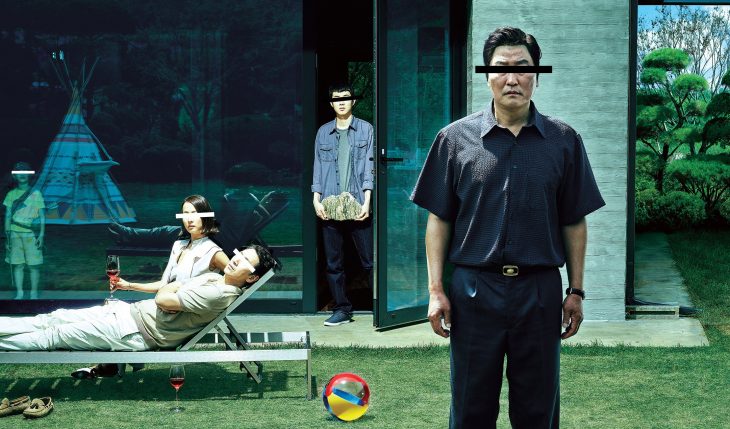
A Beautiful Portrayal of a Chaotic Reality: Parasite
When Parasite won the academy award for best picture, everyone talked about the South Korean film that would give the American film industry a run for their money. However, not only has Parasite deservedly won the most prestigious film award in the U.S., but also have claimed 187 awards worldwide.
As you immerse yourself into the South Korean Kim family, through thoughtful and excellent directing by Boong Joon-hu, you immediately feel cramped in the Kim’s intimate world. The family, which resides in a low-income area, witnesses a dark and dirty urban landscape as they try their best to make ends meet.
The close and intimate shots employed through the beginning of the film allow for viewers to relate to the humble lifestyle the Kim’s live. Often times, Joon-hu’s camera movement follows the characters in their private affairs, quickly cutting to aerial shots of the narrow neighborhood.
The inciting incident of Parasite is when the son, Ki-Woo, gets a job as an English tutor for an upscale family. The landscape shifts from dark and intimate; the colors are now bright, white and full of life in the modernist mansion in which the Park’s live. The amazing depth of field allow for the sharp contrasts of Ki-woo entering the large and neatly trimmed gardens to that of cramming next to a toilet for WiFi. Nonetheless, Joon-hu masters the use of juxtaposition throughout the film.
Soon enough, as Ki-Woo charms his way through getting his sister a job with the Park’s, the whole Kim family meanders their way into the lives and enclaves of the upper class. The quick and comical dialogue the Kim’s have throughout the film entertains and maintains an audience’s attention. Joon-hu’s clever use of honest and quick dialogue associated with a family trying to make ends meet, along with, the contrast of an upper-class culture of gullibility and helplessness, make for a thought-provoking narrative. Essentially, as audiences enter the worlds of Parasite, they’re immersing themselves in a complete cinematic experience, leaving no dull moment.
Conflict accentuates when a former housemaid arrives at the Park’s residence. Chung Sook, the woman who has replaced her, and the matriarch of the Kim family, attempts to hide her family which is basking in a house without the Park’s. Instantly, the shift of a jovial and robin-hood style hustle turns into a thrilling and exciting adventure of greed and selfishness. The contrasting and similar classes oppose frequently throughout Parasite, leaving audiences with who or what the real parasite is in the film.
The drama that slowly leads up to the shocking and unexpected ending of Parasite only uncovers more of Joon-hu’s hidden genius. Thus, Joon-hu’s narrative perfectly captures a society torn between rich and poor, hungry and gluttonous, and those who are forgotten in a competitive society. Joon-hu has not only immortalized his film worldwide, but has also left a deep and significant message to society—something most films now fail to portray.
